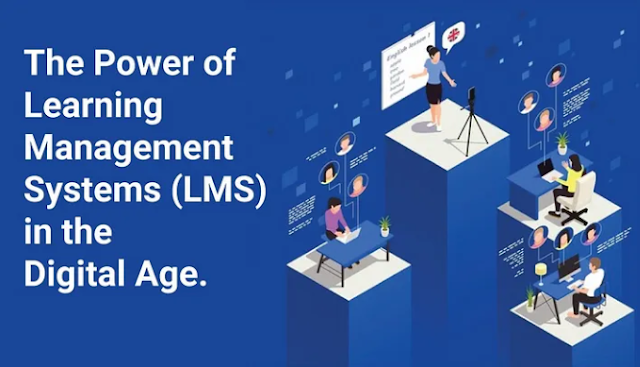In today's digital age, the keys to successful marketing lie in the world of digital platforms and strategies Digital marketing has become an essential tool for businesses to effectively reach and engage with their target audience. We will explore the various aspects of digital marketing, from its definition to its impact on businesses.
What is digital marketing?
Digital marketing encompasses all forms of
marketing efforts that utilize electronic devices and the internet to promote
products or services. It includes various channels such as search engines,
social media platforms, email marketing, content marketing, and more. This
modern approach to marketing offers businesses immense opportunities to connect
with their customers, increase brand awareness, and drive conversions.
The importance of digital marketing
Digital marketing has revolutionized the way
businesses interact with their consumers. Here are some key reasons why digital marketing is crucial for businesses:
Wider Reach
With the help of digital marketing channels,
businesses can extend their reach to a global audience. Unlike traditional
methods like print or television advertising, digital marketing has the
potential to target specific demographics and reach a wider range of potential
customers.
Cost-Efficient
Digital marketing is often more cost-efficient
than traditional marketing methods. Companies can allocate their budgets
effectively by choosing channels with a higher return on investment (ROI).
Targeted Marketing
Digital marketing allows businesses to target
specific groups of individuals based on their demographics, interests, and
preferences. This targeted approach ensures that marketing efforts are focused
on the most relevant and potential consumers, increasing the chances of
conversions and customer satisfaction.
Improved Customer Engagement
Digital marketing provides businesses with
numerous avenues to engage with their customers. Whether through social media
platforms, personalized email campaigns, or interactive content, businesses can
foster meaningful relationships with their target audience, effectively
building brand loyalty and trust.
Key components of digital marketing
Search Engine Optimization (SEO)
SEO plays a crucial role in digital marketing
by enhancing the visibility of a website in search engine results. It involves
optimizing web pages, content, and other elements to boost organic rankings,
drive traffic, and enhance the user experience.
Social media marketing
Social media platforms have become powerful
channels for businesses to engage with consumers. Social media marketing
involves creating and sharing compelling content, running ad campaigns, and
utilizing analytics to connect with the target audience, increase brand
awareness, and drive sales.
Content Marketing
Content marketing focuses on creating and
distributing valuable and relevant content to attract and retain customers.
This includes blog posts, videos, infographics, and more designed to educate,
entertain, and engage the audience while subtly promoting the products or
services.
Email Marketing
Email marketing remains one of the most
effective digital marketing strategies for nurturing customer relationships. It
involves sending personalized and targeted emails to subscribers, making
announcements, offering discounts, and providing valuable information,
ultimately driving conversions and customer retention.
Pay-Per-Click (PPC) Advertising
PPC advertising allows businesses to place
advertisements on search engine result pages or other websites and pay only
when users click on their ads. This method offers instant visibility, targeted
reach, and measurable results, making it an essential component of digital
marketing.
The role of SEO in digital marketing
Enhancing online visibility
SEO, or search engine optimization, plays a
pivotal role in improving a website's visibility on search engines like Google.
By optimizing various elements, including keywords, meta tags, and content, SEO
helps websites rank higher in search results, making them more likely to be
discovered by users.
Driving organic traffic
One of the primary goals of SEO is to attract
organic (non-paid) traffic to a website. By aligning website content with user
search intent, SEO helps attract visitors who are actively searching for
products, services, or information related to a business.
Building Credibility and Trust
Websites that appear at the top of search
results are often perceived as more credible and trustworthy by users. SEO
helps establish a strong online presence, contributing to the overall
credibility of a business or brand.
Improving User Experience
SEO involves optimizing website structure,
improving page load speed, and ensuring mobile responsiveness. These factors
contribute to a positive user experience, making it easier for visitors to
navigate the site and find relevant information.
Targeting relevant audiences
Through keyword optimization and content
strategy, SEO enables businesses to target specific audiences. This ensures
that the website attracts visitors who are genuinely interested in the products
or services offered, increasing the likelihood of conversions.
Measuring and analyzing performance
SEO tools provide valuable insights into
website performance. Businesses can analyze metrics such as organic traffic,
keyword rankings, and user behavior. This data-driven approach allows for the
continuous optimization and refinement of digital marketing strategies.
Adapting to Algorithm Changes
Search engines frequently update their
algorithms to deliver more relevant and valuable results to users. SEO
professionals stay with these changes and adapt strategies accordingly,
ensuring that a website remains optimized and visible despite evolving search
engine criteria.
The Future of Digital
Marketing
The future of digital marketing seems promising and exciting. As technology continues to advance, digital marketing strategies will evolve with it. We can expect more personalized and targeted advertising as artificial intelligence and machine learning become more prevalent. Additionally, the rise of voice search and virtual reality technologies will create new avenues for businesses to connect with their target audience. Social media platforms will play an even bigger role in marketing campaigns, with influencers and user-generated content becoming essential components. With an increasing focus on data analytics, businesses can make more informed decisions and optimize their marketing efforts. Overall, the future of digital marketing holds immense potential for businesses to reach and engage their customers in innovative and effective ways.
Digital marketing has revolutionized the way businesses interact with their audience, offering new opportunities for growth and success. Companies can effectively reach their target audience, build brand awareness, increase customer engagement, and drive conversions. As the digital landscape continues to evolve, businesses must stay updated with the latest trends and strategies in digital marketing.
















0 Comments